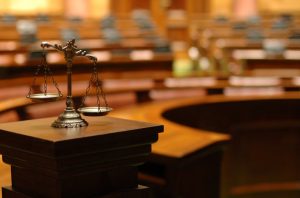Witnesses that are factually knowledgeable but are not otherwise prepared by counsel to testify can prove damaging to your case. It is not enough that the witness has a good memory of the relevant events as they unfolded. Effective trial attorneys can spot a vulnerable, unprepared witness and make that witness’s testimony sound less credible. That difference could be all the judge or jury needs to decide the case outcome.
What do I mean by unprepared? What does a witness need beyond a firm memory of the facts to be an effective, persuasive witness? As discussed in the last blog, one key is to familiarize the witness with the physical courtroom and his or her role in the proceedings.
The next key is to focus on getting the witness to effectively listen to questions and provide responsive answers. Wait. Isn’t that obvious – you are asked questions and give answers? How hard could that be? Hard. Real hard. Testifying under oath in court is a much different experience from simply sitting around a table telling an attorney what happened.
The witness will inevitably be questioned with leading questions by opposing counsel and could also face questions by the judge. A witness needs to have a firm grasp of the discipline of how to listen to a question and process the question before responding. It sounds easy but it is not. The purpose of the exercise is not figuring out how to avoid answering the question. To the contrary, it is to make sure that the witness responds directly, accurately, and to the specific questions. Teaching the witness how to listen and when to respond (and when not to respond) is key to what Gary does so effectively with the attorney and his client. Gary has been preparing people to be effective witnesses for more than 35 years.
In daily conversation, we often either finish the other person’s question as we begin to respond to what was said, or we otherwise start to respond without giving enough thought to what to say before starting to answer. Providing a responsive answer at hearing requires a great deal of discipline, concentration, a trained ear, and practice. A witness must follow critical steps of listening and processing the question before responding to every question, no matter who asks it.
The critical steps every witness must take for every question include: determining that the witness heard the question clearly; determining that the witness understands the question; determining whether the witness knows the answer to the question; formulating an answer in your mind; and finally verbalizing the answer. It is not easy or intuitive and can be mentally exhausting even someone experienced in testifying.
Gary is experienced in preparing to have witnesses testify persuasively at trial. He would be happy to explain in detail and work with witnesses so that they are effective witnesses at a trial.
About Us
Over his career, Gary Carleton served as Senior Trial Assistant District Attorney in Brooklyn, NY and also as Senior Counsel at both the Securities and Exchange Commission and the Financial Industry Regulatory Authority (FINRA). Carleton has investigated and prosecuted many complex litigations including some of the most significant enforcement cases ever brought by FINRA. These included manipulation of the Nasdaq market, trading abuses, sales practice abuses, anti-money laundering (AML), fabrication and falsification of documents, net capital violations, reporting and disclosure violations.
For further information about Carleton Law, please visit us at www.carletonlaw.net, email Gary Carleton at gary@carletonlaw.net or call at (202) 744-6297.
